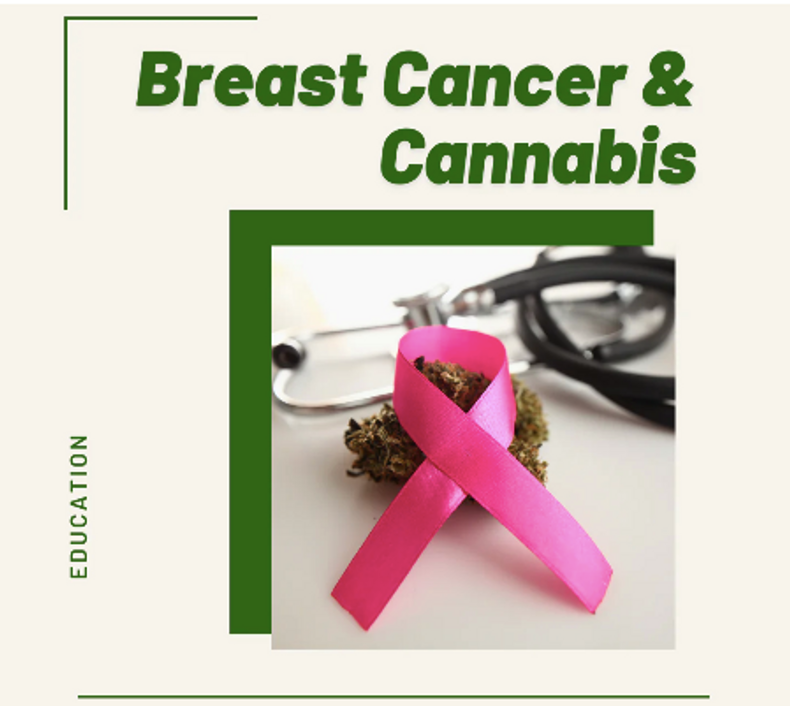
Breast Cancer & Cannabis - What the Studies Show
Cannabidiol (CBD), a cannabinoid found in cannabis, has been studied for its potential health benefits. In recent years, researchers have been exploring the role of CBD in treating various medical conditions, including breast cancer. While more research is necessary, there are many promising signs that suggest CBD could be an effective treatment for this form of cancer. Let’s take a look at what research has revealed so far.
The Role of Cannabinoids in Treating Cancer
Cannabinoids are compounds found naturally in the cannabis plant that interact with our bodies' endocannabinoid system to produce certain effects. Studies have shown that cannabinoids can help regulate cell growth, reduce inflammation, and inhibit tumor growth. This makes them potentially useful as anti cancer agents.
Research on CBD and Breast Cancer
So far, research on the potential benefits of CBD for breast cancer patients is limited but encouraging. One study found that CBD was able to inhibit the growth of breast cancer cells by activating receptors in the endocannabinoid system[1]. Additionally, it was observed that CBD could induce apoptosis (cell death) in some types of breast cancer cells. This was also done without affecting healthy cells.
Another study investigated how cannabis extracts—including both THC and CBD—could affect breast cancer cells when used together with chemotherapy drugs like Paclitaxel or Doxorubicin. The results showed that combining Chemotherapy drugs with cannabinoids helped to reduce drug resistance and increase drug sensitivity compared to using Chemotherapy drugs alone. This suggests that cannabinoids could make these treatments more effective for breast cancer patients by enhancing their efficacy.
Whole Plant Therapy in Breast Cancer Studies
Breast cancer is a disease that affects many women, with one in eight expected to develop it. Unfortunately, it can be difficult to treat. There are few ways to detect it, and some forms are resistant to current treatments. One type called "triple-negative breast cancer" is particularly aggressive and doesn't respond well to available therapies. To make matters worse, there are no targeted treatments for this type of cancer. So, patients have to undergo harsh chemotherapy that can harm healthy cells too.
Scientists are studying the effects of using whole plant extracts to treat different types of breast cancer. They looked at three types: hormone-sensitive, HER2, and triple negative breast cancer. In both petri dishes and mice models, they found that the whole plant extract was more effective at fighting cancer than just one molecule of the plant called THC. These findings suggest that using whole plant extracts could be a promising new approach to treating breast cancer.
Cannabis Extracts as Adjunctive Therapy
In a groundbreaking discovery, scientists have found that both THC isolate and whole plant cannabis extract are effective at reducing tumor growth in breast cancer patients. This revelation should serve as a catalyst for the development of safer, cannabinoid based treatments for cancer.
Researchers in Spain have noted that no cannabis-resistant tumors have been identified thus far. This indicates that cannabinoid therapies may be particularly promising for cancerous tumors. Their study also suggests that these compounds may target unidentified cellular functions shared by all cancer cells, which are absent in non-cancerous cells.
The researchers further emphasize the importance of the entourage effect, whereby the full spectrum of components in cannabis extract is more effective than pure THC alone. Although this approach is more complex, it has the potential to produce better therapeutic outcomes.
Fortunately, the whole plant cannabis extract did not diminish the effectiveness of standard cancer treatments. This is great news for cancer patients who use cannabis to manage Chemotherapy side effects, as it is a safe add-on therapy that can alleviate pain and nausea and stimulate appetite. Additionally, combining cannabis with Chemotherapy may increase its efficacy, leading to lower doses and fewer toxic side effects.

